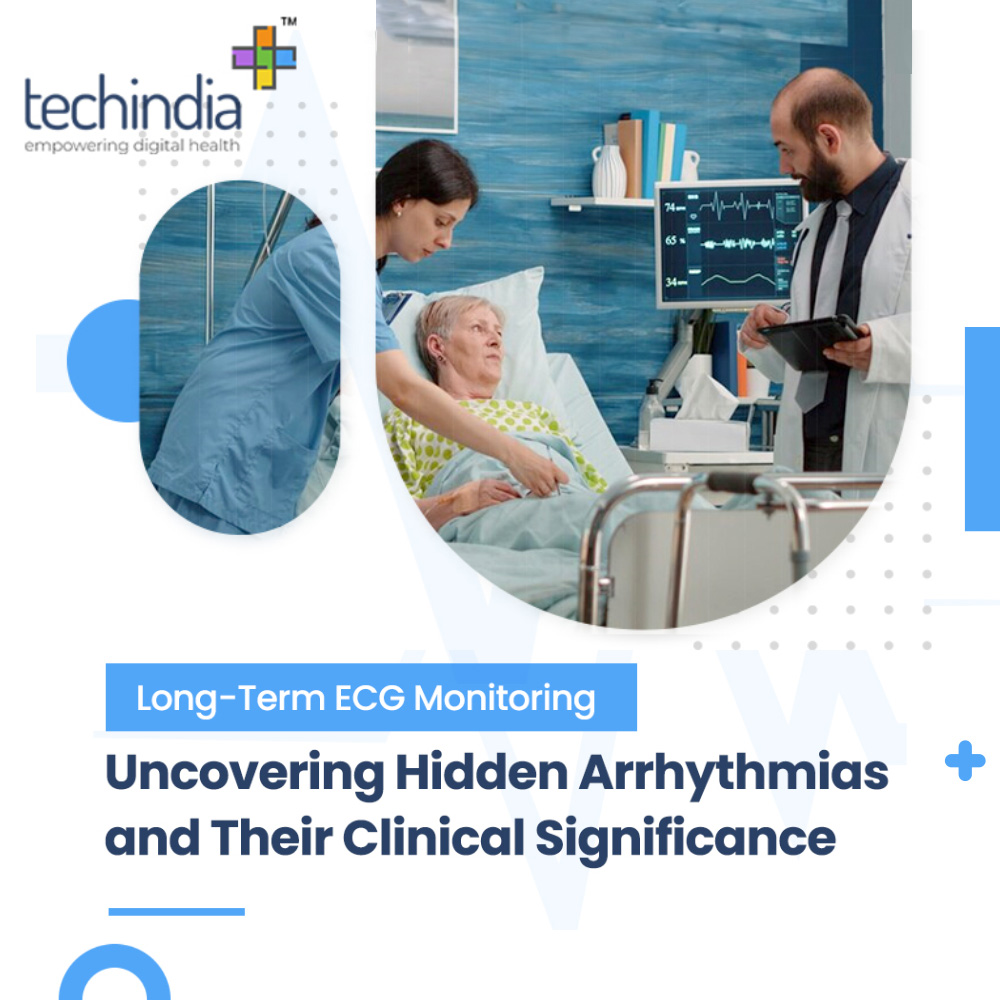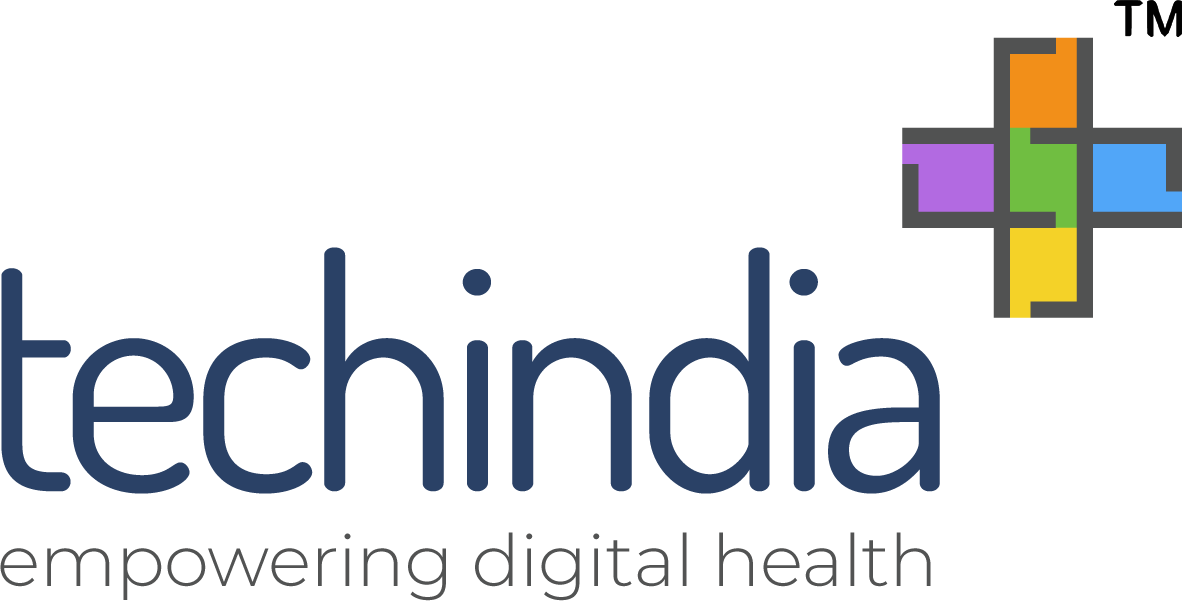- Posted: 16 Feb 2024
- Category: services
- Tag: ECG report management software, ECG rhythm interpretation, ECG rhythm monitoring service
Long-Term ECG Monitoring: Uncovering Hidden Arrhythmias and Their Clinical Significance
ECG monitoring can generally be broadly classified into two major categories, namely short-term and long-term monitoring. The first one typically entails the use of a standard 12-lead for detecting arrhythmias or the use of 48-hour ECG Holter monitors. However, given their short monitoring window, it’s easy for some arrhythmias to go undetected during this period. It is for this reason that long-term ECG monitoring because necessary, as it helps physicians to widen their diagnostic net to identify and pick up arrythmias that occur intermittently, and thus a regular ECG can easily miss. Today, we take a look at just how crucial ECG monitoring is for uncovering hidden arrhythmias, and the clinical implications of this technology.
First things first: What is long-term ECG monitoring?
With a long-term ECG solution, your heart rhythm is tracked for a much longer period, typically up to 2 weeks. However, it’s not unheard of for some devices to provide vital tracking for up to 6 months or even more.
In fact, with technologies like the implantable loop recorder, physicians can keep an eye on your heart for up to 3 years. However, such devices like the ILR require surgery for the patient, with other short-term monitoring devices typically being non-invasive technologies.

How long-term ECG detects hidden arrhythmias
When it comes to arrhythmias, some occur very visibly with clear signs for the physician to consider. For instance, simple cases of tachycardia or bradycardia can manifest with symptoms that are easily decipherable during ECG interpretations. These may include:
- Elevated heart rate (typically over 100 bpm)
- Slower than normal heart rate (typically fewer than 60 bpm)
- Shortness of breath
- Chest pains
- Heart fluttering and so on.
However, many arrhythmias may be asymptomatic in that the patient displays no signs of ill health. For example, in the case of silent ischemia, the heart is temporarily deprived of blood but the patient won’t notice any differences in their health, although over time this can weaken the heart muscles.
Their ECG reports may very well pass as normal unless you implement continuous monitoring that lets you pick up subtle and highly fleeting changes that you’d miss with a regular ECG or EKG test.
With some arrhythmias being episodic, your typical 12-second ECG test is likely to lead to a wrong diagnosis. This necessitates the need for a more comprehensive test and that’s where long-term ECG monitoring comes in handy. It provides real-time and round-the-clock tracking of the heart’s electrical activity, with such systems typically having alerts for significant threshold violations. This helps to bring to the attention of the ECG technician important changes in heart patterns that might indicate an asymptomatic arrhythmia.
The clinical significance of long-term ECG monitoring and detecting hidden arrhythmias
-
Reduced risk of stroke
If arrhythmias go undetected for too long, they affect your heart’s rhythm, so that blood isn’t fully pumped out during each cycle. Consequently, blood pools in the chambers possibly leading to a clot that can work its way up to your brain to cause a stroke.
With long-term ECG monitoring, you can receive clinical intervention long before it gets to that point, thereby helping you to lower your risk of having a stroke. Research has shown that we can reduce a patient’s risk of experiencing a stroke by up to 67% through early detection and effective management of arrhythmias.
-
Lower risk of heart failure
With heart failure affecting over 26,000,000 people worldwide, according to a report by the NIH, it’s clear that this is a global pandemic. However, it’s one that long-term ECG monitoring can help tilt the odds in our favor.
Since prolonged arrhythmias weaken the heart muscles in various ways, it can lead to congestive heart failure. Long-term ECG monitoring helps us to spot this deterioration, and to even pinpoint the arrhythmia that’s causing it. By appropriately managing the arrhythmia, we can lower the strain on the heart and the cardiovascular system at large to ensure a lower risk of heart failure.
In fact, according to a report by DocsInk, hospitals can lower heart-failure-related readmissions by 64% by leveraging remote patient monitoring technology to manage cardiac patients.
-
More effective treatment plans
With short-term ECG monitoring, a patient is monitored infrequently and a rigid treatment plan is crafted in line with the initial diagnosis. However, long-term ECG monitoring solutions provide greater flexibility with treatment.
As physicians can continuously track how a patient responds to a treatment plan in real time, it’s easy to adjust the treatment to address side effects, adherence concerns, and efficacy. Ultimately, this helps healthcare facilities to adjust, and personalize treatment or management programs to realize even better health outcomes for the patient.
-
Increase in life expectancy
Since untreated arrhythmias attract health issues like heart failure and stroke, they naturally shorten life expectancy for affected individuals. According to a report by the AHA, the mean interval for life expectancy from the point of diagnosis for patients with Atrial fibrillation (Afib) onwards ranges between 9.5 and 42 years or more.
However, with early detection and effective management, including crucial lifestyle adjustments, the same reports show that patients with Afib can live up to normal life expectancy without issue. This further emphasizes the case for long-term ECG monitoring as it very well means the difference between life and death.
-
Possibility of a permanent cure
The longer an arrhythmia goes undetected, the more damage it causes to heart muscles and your system at large. However, if you can identify an arrhythmia early enough, it may be possible to completely treat it.
Some arrhythmias are completely harmless and require no medical intervention. Many others are also completely curable when found early with a long-term ECG monitoring service. For instance, some arrhythmias can be completely cured through surgical producers thus eliminating the need to constantly take heart medicine.
Constant and continuous testing is the answer
According to a report by the British Heart Foundation, more than 500.000 people in the UK live with an arrhythmia but are unaware of it. This adversely raises the risk of a fatal health event such as heart failure and stroke. It is for this reason that we recommend regular heart screening, even for patients who may not be exhibiting any concerning symptoms., For the best-in-class long-term remote ECG monitoring service that increases your clinical practice’s diagnostic yields, be sure to reach out to Techindia today.
Recent Post

We're helping some of the most respected names in healthcare deliver measurably better outcomes. Let us show you what personally Human & AI integrated solution can do for your organization. While filling the form, please fill in the information more specifically that you are looking for.
Thank you for your query! We will get back to you shortly!!

